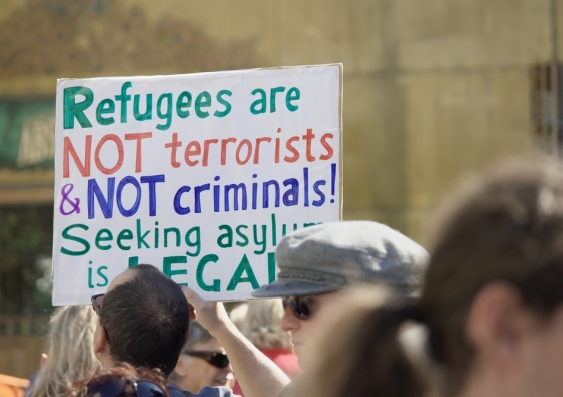UNSW hosts inaugural Refugee Alternatives Conference
The first ever Refugee Alternatives Conference will explore alternatives to current refugee policy and develop sustainable solutions to one of the global community’s great modern challenges.
The first ever Refugee Alternatives Conference will explore alternatives to current refugee policy and develop sustainable solutions to one of the global community’s great modern challenges.

Clare Morgan
UNSW Media & Content
(02) 9385 8920
clare.morgan@unsw.edu.au
A former Iraqi refugee who has become one of Australia's most respected orthopaedic surgeons, a Karen refugee from Burma who lived in a Thai refugee camp for 11 years before migrating to Australia, and a microfinance expert who fled Afghanistan when he was targeted by the Taliban will be among those telling their stories at the inaugural Refugee Alternatives Conference at the University of New South Wales (UNSW) this week.
Convened by the Refugee Council of Australia (RCOA) and hosted by UNSW as part of its Grand Challenge on Refugees & Migrants, the conference on 22 and 23 February will bring together hundreds of refugees, organisations, institutions, refugee communities, academics, advocates and experts to focus on improving policy, practice and public support for people seeking asylum and those from refugee backgrounds.
Topics to be discussed will include displacement, protection, cooperation, wellbeing, resilience, education, advocacy and unity.
A key element of the conference is a focus on the expertise of people who have lived experience of seeking asylum or being a refugee. They include Mahir Momand, who fled Afghanistan and is now the chief executive of Thrive Refugee Enterprises, which provides microfinancing for refugees starting or expanding their own small businesses in Australia.
Another speaker is Daniel Thein Tha Nya, a Karen refugee from Burma who lived in a Thai refugee camp on the Thai-Burma border for 11 years and now works as a settlement worker with Auburn Diversity Services, mentoring and supporting newly arrived Karen through their resettlement process.
Representatives of a variety of refugee communities will attend the conference as delegates, with their costs supported by generous sponsorship from many supporters.
The Refugee Communities Advocacy Network (RCAN), an organisation of people from many refugee communities who have come together to campaign on refugee justice, will officially launch as an independent network at the event.
Keynote speakers at the conference include Munjed Al Muderis, a trained orthopaedic surgeon, human rights activist and former refugee, and Gillian Triggs, Emeritus Professor and President of the Australian Human Rights Commission.
Scientia Professor Jane McAdam, director of the Andrew & Renata Kaldor Centre for International Refugee Law at UNSW Law and the academic lead for UNSW's Grand Challenge on Refugees & Migrants, will give a welcoming address at the opening session.
Paul Power, RCOA CEO, said: "We are very excited to be hosting the first ever Refugee Alternatives Conference this year, which will bring together refugee communities, academics and people with practical and policy experience to explore alternatives to current refugee policy and develop sustainable solutions to one of the global community’s great modern challenges. The Refugee Alternatives Conference is particularly timely given the scale of the challenge the world now faces and Australia’s commitment to the Global Compact on displacement at the UN Summit last year.
"We’re delighted to have representatives of refugee communities on every panel and attending as delegates, to ensure that people with lived experience of seeking asylum are at the front and centre of this debate."
More information on conference can be found here.
The two-day conference will be preceded by an Academic Symposium on 21 February, hosted by UNSW's Forced Migration Research Network and also part of the University's Grand Challenge on Refugees & Migrants.
The symposium will aim to highlight how relationships that break down perceived boundaries of researcher and researched engender a different politics of affirmation with which to challenge the current tenor of public debate on refugees.
More information on the Academic Symposium can be found here.